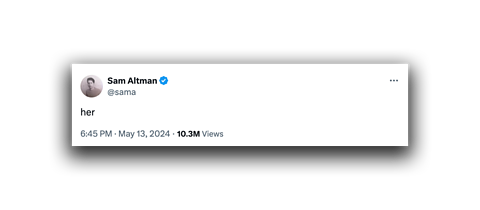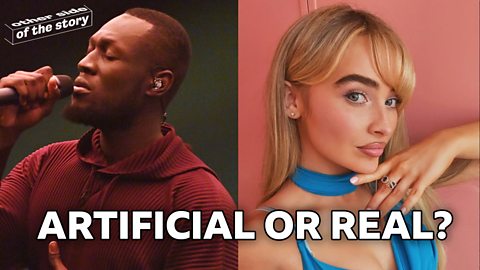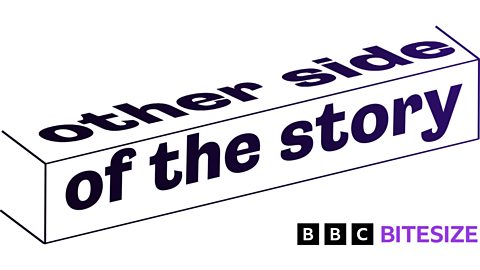
OpenAI, the company behind popular chatbot, ChatGPT, has "paused" the use of it's latest voice chatbot known as 'Sky', which features in the new GPT-4o update, after Marvel actor Scarlett Johansson accused the company of copying her voice.
Artificial intelligence is getting better and better, and it can sometimes be difficult to tell whether generated voices, images and videos are real or AI. But what is an AI chatbot, can AI be used to clone a voice and why is voice cloning controversial?

What is a chatbot?
Chatbots have been around for quite a while, you may have seen them on the help sections of some websites. In their most simple form, you type a question to the chatbot and you get a response that may, or may not, answer your question, such as how to get a refund for a product you've bought.
Not all chatbots use AI, but it is becoming more and more common as tech companies try to mimic human conversation through text and now, like in the case of GPT-4o, voice.
From the release of early voice assistants like Amazon Alexa back in 2014, to the AI powered GPT-4o in May 2024, voice technology has come a long way. Voice chatbots have a variety of applications, including answering questions, real-time language translation and assistance for people who are visually impaired. But if you are wondering whether or not you can use AI chatbots for homework, read this guide.
AI tech is now so good that you can now have a conversation with a chatbot that feels almost as natural as speaking to another human. With chatbot voices and conversations appearing so realistic, it can often be difficult to draw the line between what is real and what is technology.

Does ChatGPT-4o use Scarlett Johansson's voice?
OpenAI reportedly made an approach to Johansson, who voiced an AI chatbot called Samantha in 2013 film 'Her', to be one of the voices for chatbot GPT-4o in September 2023, but the actor turned down the offer. However, upon hearing the release demo of GPT-4o, the Black Widow star was "shocked" and "angered" that the chatbot used a voice that sounded "eerily similar" to her own.
OpenAI have since said in a blog post that "Sky's voice is not an imitation of Scarlett Johansson, but belongs to a different professional actress using her own natural speaking voice". This is despite Sam Altman, the CEO of OpenAI, posting the word 'her' on X on May 14th, the day that GPT-4o was released, a reference to the 2013 film starring Johansson.
OpenAI have said in a statement that they are working to pause Sky while they address questions about how they chose the voices in ChatGPT.

What is voice cloning and why is it controversial?
Whilst OpenAI have denied copying or cloning the voice of Scarlett Johansson, AI can be used to clone voices. Technology was recently used to clone the voice of US President Joe Biden. His voice was then used in a phone call telling people not to vote in the New Hampshire primary election, which could have had the potential to cause disruption to the election process. Joe Biden has since called for “safe, secure, trustworthy, and responsible” innovation in the use of AI generated audio. AI technology can even be used to mimic your favourite singers. This could throw up issues with copyright laws and permissions.
What are voice cloning scams?
Anyone can fall victim to a voice cloning scam as ±«Óătv science presenter, Liz Bonnin recently found out. The scammers used a cloned clip of her voice to secure a contract with an advertising firm to promote insect repellent, the advertising firm lost ÂŁ20,000 due to the scam.
But voice cloning isn't just limited to celebrities and politicians, with websites now offering free voice cloning AI tools, cyber criminals could use the technology to make a copy of your voice. Short snippets can be taken from videos you've posted on social media and used to train the AI to make a clone of your voice which could potentially be used in scams, with criminals able to send voice notes to friends and family members using your 'voice', asking for money.
If someone ever sends you a voice message and it doesn't sound quite right, stop and think about whether or not the message is genuine before replying. It's important you verify sources. Remember, if something seems a bit sus, it probably is.

Not sure if the news you’re seeing on social media is true or false? Can you always tell if the things you see online are real or fake? Learn how to get the other side of the story with our quizzes, videos and explainers.


